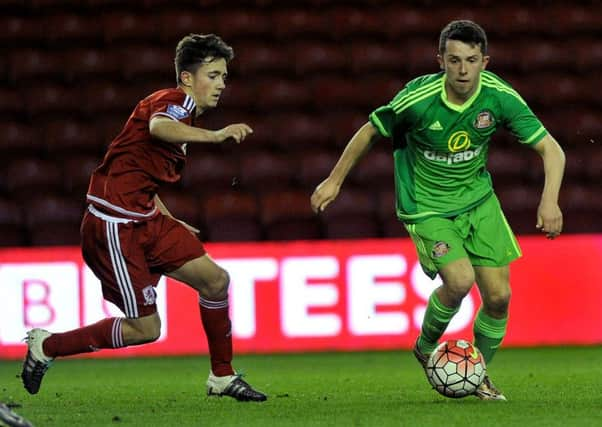End of emergency loans will force Sunderland to change youth strategy


Smith has been part of a Sunderland side who have challenged at the summit of the Under-21 Premier League all season, yet he branded his 25 minute League Two debut in front of 4,500 people at Brunton Park as “miles ahead”.
“Playing in front of people, the pressure for points – you don’t get that with the 21s,” he said.
Advertisement
Hide AdAdvertisement
Hide Ad“Sometimes having a bit of pressure and dealing with it makes you a better player.”
If League Two is “miles ahead” of the insipid, stand-off football of the U21 League, then how on earth is this youth structure capable of producing players for the Premier League?
The achievements of Andy Welsh’s men in challenging Manchester United at the U21 League summit this season shouldn’t be brushed over, particularly as they have lost two of their stand-out attacking players in Duncan Watmore and Lynden Gooch for much of the campaign.
But there is clearly a huge issue of how it prepares players for competitive football.
Advertisement
Hide AdAdvertisement
Hide AdThe game’s powerbrokers realise it too, hence the proposals mooted for U21 sides to be included in the Johnstone’s Paint Trophy.
Extra finance is being injected into the U21 League in a bid to give the winners more of an incentive, yet that won’t solve the problem of these rookies needing to come up against seasoned professionals to improve their physicality.
Faced by the weaknesses of the competition, Sam Allardyce is eager for as many of Sunderland’s promising youngsters as possible to head out of the Stadium of Light on loan, even if there were no fresh departures yesterday before the emergency loan deadline.
But there have been underlying problems in getting players down the football pyramid.
Advertisement
Hide AdAdvertisement
Hide AdThe outstanding ones such as Watmore and Jordan Pickford inevitably have a queue of suitors, and the evidence is clear of the benefits stemming from their spells away from Wearside.
Yet many League One and League Two clubs are wary of taking a chance on a youngster whose experience is limited to the U21 League, particularly when they are operating on a limited budget.
Those who do make an enquiry with Sunderland invariably get bogged down in the details of what percentage of wages they’ll pay and how long the loan will be.
But these are issues when lower league clubs are still able to sign players on a month-by-month basis.
Advertisement
Hide AdAdvertisement
Hide AdHow will it be next season when there is no opportunity for emergency loans?
Allardyce - a former academy director at Sunderland - believes FIFA’s outlawing of the system will be catastrophic for youth development.
It’s difficult to disagree with the Sunderland boss. When lower league managers can only sign players on a half or full season loan, they will inevitably be wary of taking a chance on an unknown rookie.
“It will put extra pressure on the managers not to take young players in case they don’t work out, which cuts down our development of young players, which has proven to be the best way to develop a player to play in the Premier League,” said the Sunderland boss.
Advertisement
Hide AdAdvertisement
Hide AdPerhaps if Sunderland are in the Championship next season, then the new restrictions won’t have such a seismic effect. The club’s homegrown talent will clearly have a greater chance of being involved for the first-team than in the top flight.
But if Sunderland stay up, then the Black Cats are going to have to be far more pro-active in agreeing loan spells for their young guns.
Getting hot prospects competitive experience in both August and January will suddenly become a priority.